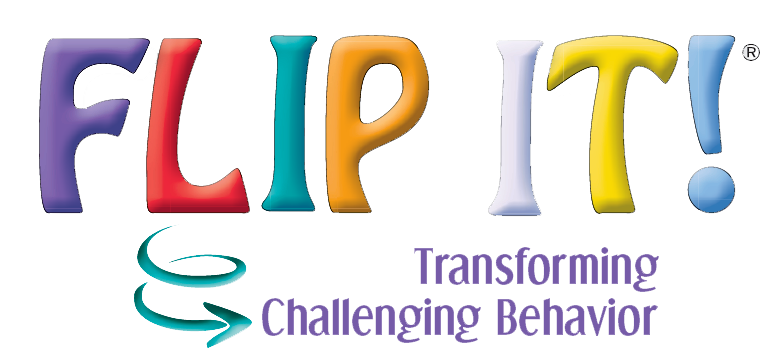May 22, 2023
By Rachel Wagner, MSW

FLIP IT is a strategy that offers a simple, kind, strength-based, commonsense and effective four-step process to address children’s day-to-day behaviors that adults find challenging. The four steps are embodied in the FLIP mnemonic which stands for F – Feelings, L – Limits, I – Inquiries and P – Prompts. FLIP IT is nothing new, but transforms best practice into a strategy that is easy to remember, applicable in a variety of challenging situations and portable. It helps adults in supporting the social and emotional development of young children and in reducing instances of challenging behavior.
This blog post won’t be getting too much into this strategy though, because there are key prerequisites that are extremely helpful to have in place before even trying the FLIP IT strategy – or any strategy for that matter – for the first time.
A solid relationship
Every strategy we use with children will only be as successful as the relationship it is built upon. We learn best from people who make us feel safe, valued and understood. For a child, FLIP IT is the process of learning about feelings and healthy coping skills, and a caring adult must facilitate this learning. Strive every day to strengthen your relationship with the child through play, listening, respect and caring. FLIP IT can also help strengthen the bond between you and the child, because the Feelings step conveys empathy.
Empathy
Empathy is the ability to see and feel from another person’s perspective. Seeing challenging situations through the eyes of a child is critical to the FLIP IT process. Even if the emotion or challenge seems small to you, try to imagine what it means to the child at their age, in their world, with their limited life experiences. Empathy while using FLIP IT means honoring a “child-size” problem for what it means to that child. Showing empathy is the first step in teaching young children how to have empathy for others.
An understanding of ICK
ICK refers to the negativity or risk factors in an individual’s life. ICK includes factors within ourselves, our families, and our environment that make us feel bad and less able to handle challenges. When you reflect on ICK in the life of a child, try to visualize it as a sticky and heavy slime that covers the child and weighs them down. ICK sticks to us and makes coping with life’s difficulties even more challenging. We all have ICK in our lives, and this does not mean we are doomed or sick. “ICKNESS” does not have to equal sickness, unless we choose unhealthy coping strategies that can become hurtful habits. The goal is to give children healthy ways to cope with ICK early in life. FLIP IT helps adults instill in children healthy coping strategies that can last a lifetime.
Before you give any new strategy a try, whether it’s FLIP IT or something else, remember these prerequisites. They are essential to the success of the strategy. And don’t forget the PRE-prerequisite…take care of yourself.
Source: Wagner, R. FLIP IT! Transforming Challenging Behavior. Kaplan Early Learning Company, 2011.
Rachel is an early childhood mental health specialist and national trainer with the Devereux Center for Resilient Children. She is the author of FLIP IT! Transforming Challenging Behavior, and co-author of Your Journey Together: Building the Resilience of Children and Families as well as the Devereux Resilient Leadership Survey (DERLS).


